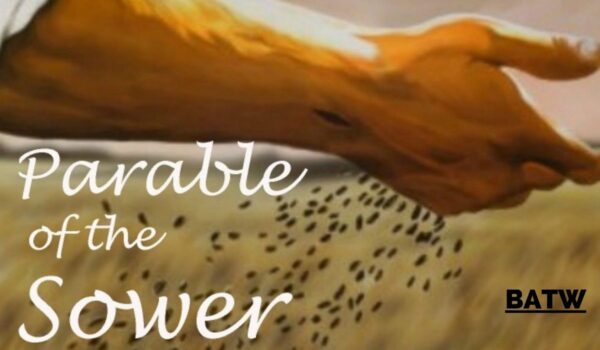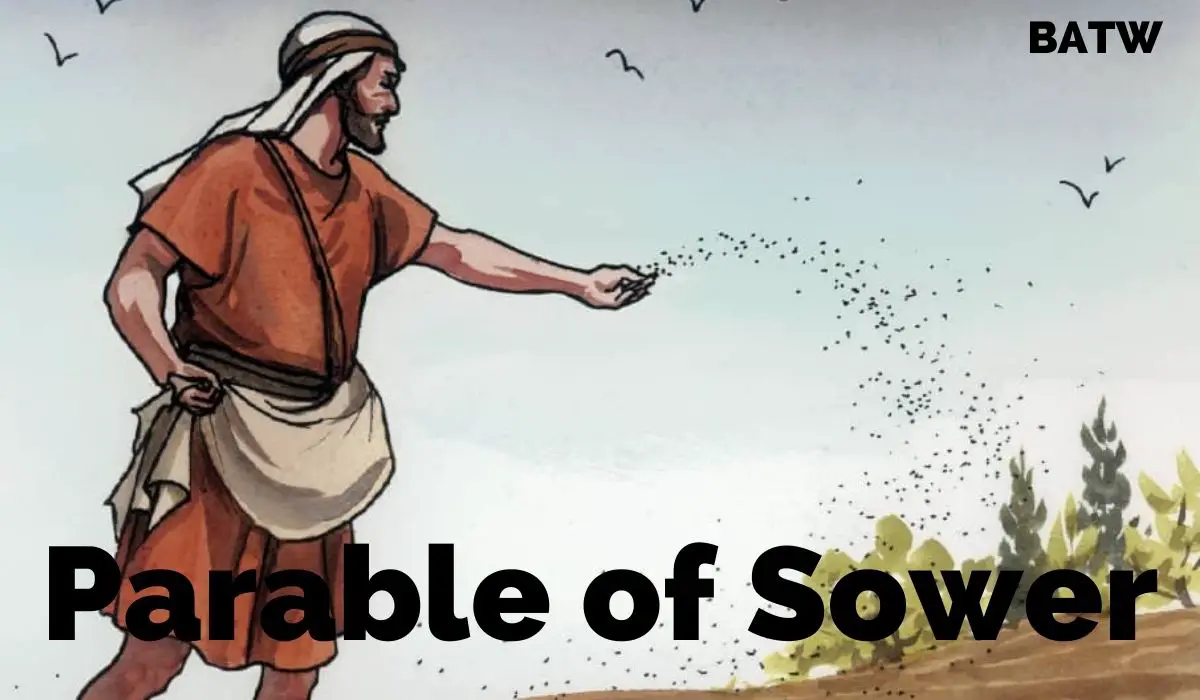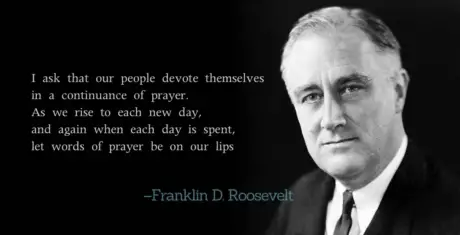The Meaning of The Parable of The Sower
The Parable of the Sower takes the prize as Jesus’ most controversial parable!
Consequently, I have a question for you: Is this parable about the seed or Sower, or is it about both, or could there be a third option? Sorry, that’s not one question but three!
So, should we call it the Parable of The Sower or The Parable of The Seed?
Nevertheless, let’s explore this proverb and discover its meaning and how it’s relevant to us today.
Scriptures Concerning the Parable of The Sower
Jesus teaches the Parable of the Sower to the Jews but explains it only to his twelve disciples.
Let’s look at the facts of this parable then, we will examine the interpretation or meaning of it that Jesus provides.
My Bible references for this Bible Study are Matthew 13:1- 9; 13:18-23; Mark 4:1-9; 4:14-20 & Luke 8:4-8; 8:10-15.
We are a participant in the Amazon Services LLC Associates Program, an affiliate advertising program designed to provide a means for us to earn advertising fees by linking to Amazon.com and affiliated websites.
Read our Affiliate Disclaimer here!
Summary of the Parable of The Sower
Let’s examine the meaning of the main components in the Parable of the Sower.
Jesus explains plainly the meaning of each piece of the riddle.
He tells us who the Sower represents, the preacher or teacher of the Word of God (Mark 4:14).
What are the Seeds? They are the Words of God (Luke 8:11).
Who is the Wicked One? Mark 4:15.
Jesus also expounds on the meaning of each soil type.
Next, he informs us what the “field” stands for, the World.
Finally, he explains that the harvest represents Believers (Luke 8:15).
Details of the Parable of The Sower
Jesus gets creative when the crowd of people he was teaching got too big.
“The same day went Jesus out of the house, and sat by the sea side” (Matthew 13:1).
To ensure that crowd control was at its best and that everyone present could hear his words (remember he had no microphone), Jesus got creative and taught the people from a boat which was in the sea, while the people stood on the shore.
“And great multitudes were gathered together unto him, so that he went into a ship, and sat; and the whole multitude stood on the shore”.
(Matthew 13:2)
As I continue to teach on the Parables of Jesus Christ, I want you to observe that in each of them, he speaks only to the “multitude” or crowd in parables but explains the same to his twelve leaders.
To learn why he did this read this Bible Study.
Jesus, in this Parable of the Sower, explains that when a sower or a farmer goes out to sow seeds, he will encounter four main types of soils (grounds).
4 Main Kinds of Grounds
He continues to inform us that depending on which type of soil the seeds fell into the farmer shall enjoy a specific harvest.
Because of the nature of parables, we don’t know what the variables mean until the narrator explains them.
Note too that Jesus used examples from Jewish living that the people understood.
“And [Jesus] spake many things unto them in parables, saying, Behold, a Sower went forth to sow”.
(Matthew 13:3)
Don’t read much into this! At this point, he is saying “a Sower” or a farmer goes to his cultivation to sow some seeds.
As he dispersed the seeds they fell into four different types of soil. These include wayside, stony ground, amongst thorns, and good ground.
1). Seeds by The Wayside
The first type of soil that the seeds fell into he described as the wayside.
And wayside means alongside the road or walkway.
“And when he sowed, some seeds fell by the way side, and the fowls came and devoured them up”.
(Matthew 13:4)
Additionally, Jesus explains, in this Parable of the Sower, what happens to the seeds that fell by the wayside.
Birds eat them as soon as the Sower sowed them. Of course, “the fowls” is a metaphor for devils!

2) Seeds on Stony Ground
Next, Jesus tells us about the second type of soil. This one he calls “stony places”.
“Some fell upon stony places, where they had not much earth: and forthwith they sprung up, because they had no deepness of earth”.
(Matthew 13:5; Mark 4:5; Luke 8:13)
Again, this Master Farmer informs us of the nature of this type of soil and what happened to the seeds that fell into it.
These seeds grew, but because there wasn’t much earth (seeds thrive best in earth and not rocks) they didn’t last long.
“And when the sun was up, they were scorched; and because they had no root, they withered away”.
(Matthew 13:6; Mark 4:6)
3) Parable of the Sower: Seeds Among Thorns
The third soil type is thorns. Again, the seeds that fell amongst thorns grew but they dominated them for they “choked them”.
“And some fell among thorns; and the thorns sprung up, and choked them”.
(Matthew 13:7; Mark 4:7; Luke 8:14)
Also, note that these seeds grew. But the thorns grew much more than they did. But, why? They had access to the same soil?
So, again, we know the nature of the soil and what happens to the seeds that fell into it.
4) Good Ground – Parable of The Sower
The final type of soil is good ground. As he did before, again Jesus tells us what happened to seeds that fell into good ground.
“But other fell into good ground, and brought forth fruit, some an hundredfold, some sixtyfold, some thirtyfold”.
(Matthew 13:8; Mark 4:8; Luke 8:15)
They produced bountiful harvests on a spectrum of thirty to one hundred percent increase.
The seeds that fell on the good ground are the only ones that produced a harvest!
Finally, Jesus finished the Parable of the Sower with a strong endorsement:
He says,
“Who hath ears to hear, let him hear”.
(Matthew 13:9; Mark 4:9)
In other words, he is saying accept my words on this and embrace it!
What is the Main Message of the Parable of the Sower?
Owing to the personal nature of parables we shouldn’t assign meanings to them.
Instead, we should accept the narrator’s explanations for his riddles.
Thus, what is the meaning of the Parable of the Sower according to Jesus Christ its creator and narrator?
To see and examine his interpretation we should peruse Matthew 13:18-23; Mark 4:14-20 and Luke 8:10-15.
Jesus Christ himself encourages us to accept his explanations for the Parable of the Sower.
Therefore, he declares,
“Hear ye therefore the parable of the sower”.
(Matthew 13:18)
In other words, he is saying, listen to the meaning of the Parable of the Sower as I explain it to you!
The Meaning of The Seeds by the Wayside
“When any one heareth the word of the kingdom, and understandeth it not, then cometh the wicked one, and catcheth away that which was sown in his heart. This is he which received seed by the way side”.
(Matthew 13:19)
So according to Jesus’ explanations of the Parable of the Sower and specifically, the seeds by the wayside, these different types of soil are people.
They represent the hearts of people.
As a result, he starts his explanation by saying when anyone hears the word of the kingdom.
If such a person does not understand “it” “then” comes the “wicked one” and steals away the Word of God that he just heard (Matthew 13:19).
Who Is “The Wicked One”?
Apostle Mark explains explicitly when the “Wicked One” comes and who he is.
Mark informs us that the “Wicked One” really is “Satan” and that he comes “immediately” as a person hears and receives the Word of God (Mark 4:15).
“And these are they by the way side, where the word is sown; but when they have heard, Satan cometh immediately, and taketh away the word that was sown in their hearts” (Mark 4:15).
However, the Beloved Physician, Dr. Luke explains why Satan steals the Word of God from our hearts.
“Those by the way side are they that hear; then cometh the devil, and taketh away the word out of their hearts, lest they should believe and be saved” (Luke 8:12).
He Comes to Steal, Kill, & Destroy
Note, also, that Luke supports Mark’s declaration that the Wicked One is Satan for he informs us that he is “the devil” Luke 8:12.
Are you guilty of this? Are you allowing the Devil to steal the Word of God from your heart before you could believe it?
In this riddle, “the fowls” represents the “wicked ones” (Matthew 13:4).
When studying the Holy Bible, we have no need for conjectures because it supplies us with all our answers.
The Scripture quoted above tells us that “This is he which received seed by the way side” (Matthew 13:19).
So, we know whom he is referencing in his description and that the same is a person for he says “he”.
Please, don’t get hung up on the gender for “he” here refers to “anyone” whether that person is male or female.
But don’t underestimate the Devil. He’s very subtle and his methods work if you are ignorant of them.
Initially, he comes to steal. But that is not is objective for he comes ultimately to destroy us.
“The thief cometh not, but for to steal, and to kill, and to destroy: [But Jesus says], I am come that they might have life, and that they might have it more abundantly.”
John 10:10
How is the Parable of the Sower Relevant Today?
Today, whenever you hear the Word of God you are faced with a number of responsibilities.
First, ensure that the Word that you are receiving is indeed the true Word of God.
This means that you must know and trust the teacher or preacher who is bringing that Word.
Trust only genuine representatives of Heaven.
Second, ensure that you understand the message or sermon.
If you don’t, immediately Satan will steal from your heart that Word that you just heard and received
Read this book and it will explain how Satan does that.
Today, the Parable of the Sower is relevant to us because it identifies (for us) our deficiencies in our attitude to the Word of God.
Parable of The Sower – Meaning of Seeds in Stony Places
Jesus Christ continues to explain the meaning of the Parable of the Sower to his twelve leaders.
Now, he is about to tell us what the seeds among stony ground mean.
“But he that received the seed into stony places, the same is he that heareth the word, and anon with joy receiveth it”.
(Matthew 13:20; Mark 4:16; Luke 8:13)
Again, he is consistent, for he informs us that this type of soil (seeds in stony ground) represents the heart of a person.
Note how he continues to use “he” in the sentence above and before in “seeds by the way side” to emphasize that he is talking about a person (Matthew 13:19-20).
Jesus tells us that “seeds in stony places” possess no confidence in their salvation. Or they have no root in themselves. They are shallow Christians.
They Have No Roots
Their confidence in the Word of God, in Jesus Christ, and in the Lord God is shaky. Thus, they will only “believe” the Word for a while (Luke 8:13).
They will buckle under any pressure which comes to test the Word of God.
Consequently, they will only be Believers until persecution for the Word surfaces.
Then they abandon their faith in God or the Word of God.
“Yet hath he not root in himself, but dureth for a while: for when tribulation or persecution ariseth because of the word, by and by he is offended.”
(Matthew 13:21; Mark 4:17)
How is the Parable of the Sower – Seeds In Stony Places – Relevant Today?
As Believers in Jesus Christ, today we will face persecution or tribulation for the Word’s sake.
When we are aware that they will come when they surface, we shouldn’t be surprised for we should be expecting them.
Thus, we should be prepared to deal with them and not run away from them.
Read this book and it will level up your understanding of how tribulation or persecution enters your life because of the Word.
Thus, the parable of the Sower, seeds in stony places, will assist us to recognize what type of soil we are and how to deal with the challenges of that soil type.
Parable of The Sower – Meaning of Seeds Among Thorns
Now, Jesus is at the third type of soil, mainly seeds amongst thorns.
“He also that received seed among the thorns is he that heareth the word; and the care of this world, and the deceitfulness of riches, choke the word, and he becometh unfruitful”.
(Matthew 13:22; Mark 4:18-19; Luke 8:14)
With seeds by the wayside, he hears the Word of God but doesn’t comprehend it; in seeds on stony places, he abandons his faith when problems relating to the Words come, but in seeds amongst thorns the Believer is “unfruitful” because he allows other things to take preeminence over the Word of God.
For example, many Christians don’t realize that they need to nurture the Word of God.
Once you have received a “Word” from God guard that Word. Water it! Hide it and keep it until it grows. One way to do this is to have personal devotions time every day.
I would recommend that you set aside thirty minutes every day. Utilize at least fifteen minutes every morning for Bible reading and praying.
Then another fifteen minutes in the evening or night for the same. Do this for one month and I guarantee that you will do it for the rest of your life.
This will assist you to keep and grow the Word of God. And as it grows your faith in Him will increase too.
The seeds amongst thorns Christians don’t know how to prioritize. We must give the most important things first priority.
These always place movies, and fun, and other things before the Word of God.
How is the Parable of the Sower – Seeds Amongst Thorns – Relevant Today?
It serves as a very thorough and capable guide to salvation. It identifies our attitudes to receiving the Word of God.
And it shows us what to avoid to “keep” the word of God.
Additionally, it demonstrates how we will respond depending on the soil type that we represent.
Parable of The Sower – Meaning of Seeds in Good Ground
Finally, Jesus tells the meaning of the seeds in good ground.
“But he that received seed into the good ground is he that heareth the word, and understandeth it; which also beareth fruit, and bringeth forth, some an hundredfold, some sixty, some thirty”.
(Matthew 13:23; Mark 4:20; Luke 8:15)
According to Jesus, the Believer hears the Word, understands it, and is fruitful.
But what is implied in this is that in order to be fruitful he has to hide and nurture that Word until it produces fruits (Luke 8:15).
He cannot afford to lose the Word by any means before it brings forth fruit.
Else he would be no different from the other three persons who also heard the Word.
Conclusion
In this parable, all the hearers heard and received the Word of God, but only one-fourth of them was fruitful.
Similarly, today only one in four persons who hear the Word of God will be fruitful.
Only one person out of four will accept and believe it and be saved. This statistic right here makes me sad.
That means that many, many, people will be lost.
The Parable of the Sower is relevant today because it shows us that there is a battle for the Word of God.
Satan is always attempting to steal the Word of God from the hearts of hearers.
If we don’t understand it, he strives to steal it from us immediately as we receive it.
Don’t Allow Him to Steal It!
However, if we comprehend that Word of God the Devil does not give up then, for he employs other tactics such as lack of confidence in our salvation, and replacing the importance of the Word of God with other “worldly” goals and desires, thus effectively stealing it from us at a later time.
However he does this, if we allow him to steal the word of God from our hearts then we are “unfruitful”.
But keeping and maintaining the word of God in our hearts will ultimately ensure that we are fruitful and not just fruitful but procreating in successively exponentially greater quantity.
What Is The Fruit of The Word?
In closing, think about this then respond: What is the fruit of the Word of God?
What is that fruit that Jesus expects us to produce having heard, accepted, received, understood, believed, and kept the Word of God?
Please, respond in the comments below.
Thank you for your time!



